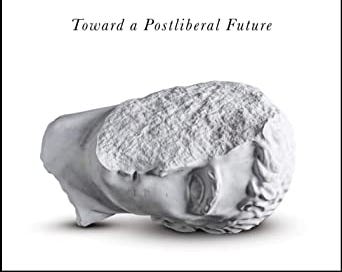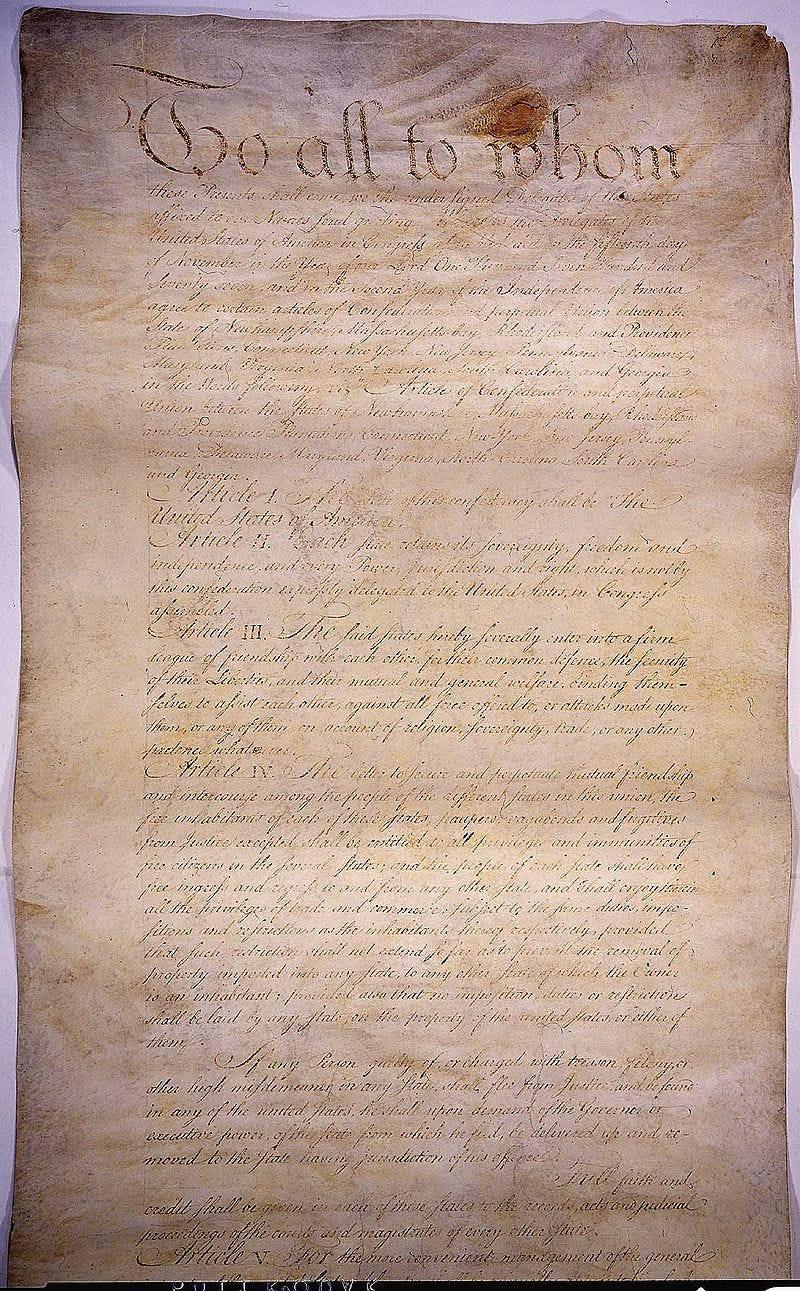Patrick Deneen's Anti-Federalist Conservatism
Revisiting Regime Change: Toward a Postliberal Future
In his 2023 book Regime Change: Toward a Postliberal Future, the Notre Dame political theorist Patrick Deneen exhibits his many political and philosophical influences: Aristotle, Aquinas, Polybius, Machiavelli, Tocqueville, Disraeli, just to name a few. But absent in this list are the Federalists - the architects of the American Constitution and political system. Nowhere in this polarizing treatise - the title alone is sufficient to provoke a fierce reaction - does Deneen acknowledge or praise the masters of political science - Alexander Hamilton, James Madison, and John Jay among them - that brought about the American Republic.
In fact, Deneen dedicates a great deal of the book to the wisdom of the Anti-Federalists - opponents to the American Constitution:
In contrast to the Framers, whose system sought to encourage the great and ambitious to hold public office, and which promoted the superiority of good administration to local rule, the anti-federalists insisted upon the superiority of the common sense embedded in and derived from the variety of places throughout the confederation. A more local and modest scale would not only serve as the cradle of an education of virtue, but would offer only modest means that would, in turn, tame the temptation toward self-aggrandizement and overweening ambition.
To understand Deneen’s ‘postliberal’ conservatism, we have to understand what the Anti-Federalists were for. As said by the University of Chicago political scientist Herbert J. Storing: “If the foundation of the American polity was laid by the Federalists, the Anti-Federalist reservations echo through American history.” Paradoxically, despite their opposition to one of America’s founding documents, the Anti-Federalists are entitled to be counted among the Founding Fathers. They were Thomas Jefferson, author of the Declaration of Independence; Patrick Henry, who uttered “Give me Liberty, or give me death!” during the Second Virginia Convention in 1775; Samuel Adams, Governor of Massachusetts and cousin to President John. Two of the three signed their names to the Declaration - Henry was serving as Governor of Virginia at the time - facing certain death if their revolution failed.
Much like the label ‘Neo-conservative’ in recent times, ‘Anti-Federalist’ was the descriptive term coined by their opponents: “Unquestionably the Federalists saw the advantage of a label that would suggest that those who opposed the Constitution also opposed such a manifestly good thing as federalism.” Contrary to this characterization, Anti-Federalists saw themselves as true Federalists, particularly in their support of the Articles of Confederation.
Finalized in 1777 and ratified in 1781, this document was the law of the land, until the Constitutional Convention of 1787. The Articles established a weak federal government alongside strong state sovereignty. During this six-year period, the United States of America established itself as a confederacy, and the sovereign states were allied by ‘mutual friendship and intercourse’. The federal government was responsible for common defense, but did not have the right to tax the states. For the Anti-Federalists, the Articles embody the true constitutional principles on which the Revolution was fought. In contrast, they considered the proceedings of the Philadelphia Convention of 1787 a threat to the “publick faith and confidence” which “bind[s] and cement[s] the community” and “establish[es] them as a body politick.” In forming a stronger national government, the Federalists were seen as eroding the sovereignty of the states and the custom of local government.
Patrick Deneen is no doubt an heir to such Anti-Federalist objections to the Constitution. He also shares the Anti-Federalist objection to the principle of separation of powers, by which the Constitution is anchored. Instead, Deneen favors the classical principle of the mixed regime:
A well-mixed regime is no longer a ‘chimera’ — the mythical beast made of many parts — but one thing composed of sympathetic and compatible elements. The elite must govern for the benefit of the many, while the many must restrain the dangerous temptations of the elite.
For the opponents of the Constitution, the reliance on checks and balances among the branches of government not only would result in constant internal division, but it would also render government more complex. “[T]his government,” said Patrick Henry. “is of such an intricate and complicated nature, that no man on this earth can know its real operation.” Nowadays, with an increasingly powerful Executive, an increasingly divisive Judiciary, and an increasingly dysfunctional Legislative, it is not difficult to understand where these objections are coming from. Deneen, like the Anti-Federalists before him, warns of an out-of-touch and dysfunctional elite class whose interests become self-serving. The decadence of the elites happens in parallel with the division and strife amongst the populace. In the Roman Republic, the division was between the ruling Patricians and the lower-class Plebeians. In today’s America, the division seems to be between an over-educated ruling class with radically different principles of governance, and a dissatisfied populace that yearns only for stability and prosperity.
However, I do not see how transforming into a ‘postliberal’ society will adequately address these misgivings. For one, unlike Deneen, the Anti-Federalists objected to the Constitution on the grounds of protecting individual liberty. Patrick Henry, Thomas Jefferson, and others were deeply committed to the Revolution’s guarantees of “Life, Liberty, and the Pursuit of Happiness” as written in the Declaration of Independence. As schooled as Jefferson was to the classic texts of political thought, he never once doubted the “self-evident” truth that “all men are created equal.” Deneen, on the other hand, seeks to revive ideas of classical philosophy that are alien to the American tradition. His alienation from the American political tradition is further emphasized by Michael Walzer:
Deneen likes the Hungarian policy of giving a lifetime tax exemption to any woman with four or more children. If we ever speak in public, we would, freely, say all the right things. Our piety would have the benefit of state support. We would find only the right books in the public library (the aristoi would probably have to read more widely, for the common good). We wouldn’t have to bother to vote to remind the aristoi of our ordinary virtues.
Additionally, the ‘postliberal’ America Deneen envisions is precisely the reasoning behind the Anti-Federalist opposition - that it would enshrine a permanent aristocracy. In the case of Deneen, he has no qualms describing his new regime as “aristo-populism”. However he calls it, it is clear that the polity Deneen envisions would provoke strong opposition, even from the Anti-Federalists that influenced him.





